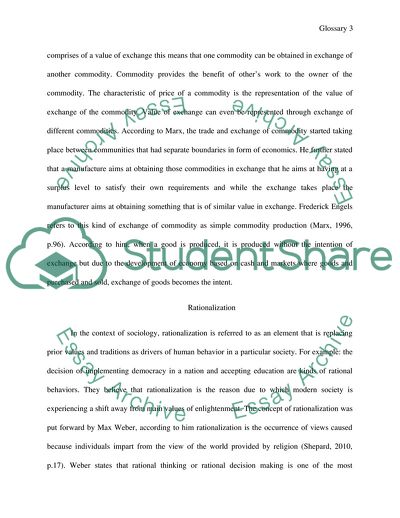Cite this document
(Commodity, Rationalization and Globalization Essay - 1, n.d.)
Commodity, Rationalization and Globalization Essay - 1. https://studentshare.org/sociology/1788754-theorising-social-life-keywords-glossary-3-deffinitions-define-commodity-rationalization-and-globalization
Commodity, Rationalization and Globalization Essay - 1. https://studentshare.org/sociology/1788754-theorising-social-life-keywords-glossary-3-deffinitions-define-commodity-rationalization-and-globalization
(Commodity, Rationalization and Globalization Essay - 1)
Commodity, Rationalization and Globalization Essay - 1. https://studentshare.org/sociology/1788754-theorising-social-life-keywords-glossary-3-deffinitions-define-commodity-rationalization-and-globalization.
Commodity, Rationalization and Globalization Essay - 1. https://studentshare.org/sociology/1788754-theorising-social-life-keywords-glossary-3-deffinitions-define-commodity-rationalization-and-globalization.
“Commodity, Rationalization and Globalization Essay - 1”. https://studentshare.org/sociology/1788754-theorising-social-life-keywords-glossary-3-deffinitions-define-commodity-rationalization-and-globalization.


